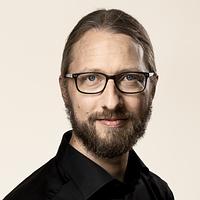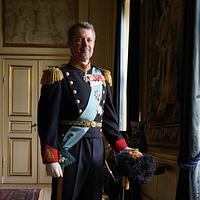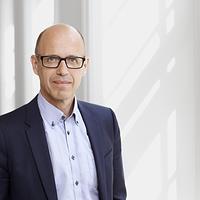Your royal highness, nobel laureate, ladies and gentlemen
Thank you to the organizers for inviting me to give my opening remarks at this public celebration of science in general and some of our great Danish scientists in particular.
I am today representing the Danish parliament, but as mentioned by Professor Mogens Høgh Jensen, I do have a background in science myself and have spent most of my working life doing research in Denmark and abroad. However, I must confess that my own achievements do not even come close to what both Niels Bohr and Morten Meldal have accomplished.
Nevertheless, as we gather today to celebrate the exceptional achievements of Nobel laureate Morten Meldal and pay homage to the legendary Niels Bohr, I am reminded of my own journey into the world of science and research. From a young age, I found myself captivated by the wonders of nature and the world around us. This fascination eventually led me to become a researcher myself but also to spend time writing about scientific topics for a more general audience, hoping to share the excitement that scientific exploration brings.
This sense of fascination and wonder is, of course, not limited to children alone. It extends to teenagers and young adults, who possess an immense curiosity about the universe and their place within it. The teenage years are a time of exploration and discovery, a time when young minds yearn to understand the world's mysteries and their own role in shaping its future. Here, the media play a crucial role especially in today's world where facts and fiction, knowledge and disinformation are in constant battle for our attention. We need trustworthy communication about scientific breakthroughs to inspire curiosity and interest in science, and highlight why we need science to overcome the great challenges we face today. Climate change. Clean energy. Food and water for all.
This fascination and inspiration that scientists are driven by can and should also be instilled in our younger generations as well. We must tap into their natural sense of curiosity and their desire to make a difference. I see this inherent drive for asking questions, for exploring, for being curious in all my own children from my two year old daughter to my 15 year old son. We have an opportunity - I would almost say obligation - to instill in them a sense of wonder and awe for the natural sciences. This is something we need to do, since we as a society are dependent on great minds, great ideas and great discoveries.
Today, we have the perfect opportunity for achieving exactly this. We are simultaneously celebrating the 100 year anniversary of Niels Bohr’s Nobel prize, the Nobel prize awarded to Morten Meldal last year, and the fact that in a few weeks the Danish astronaut Andreas Mogensen will embark on his next mission to the International Space Station.
If this combination of great scientific achievements does not ignite a sense of wonder in our youth, nothing can. All of this is a testament to the potential of human ingenuity and courage to venture into the unknown, to push the boundaries of human knowledge, and to expand our understanding of the world we live in.
As a nation, we must celebrate and recognize the achievements of our young minds, inspiring them to embrace challenges and pursue scientific careers. Let us create a culture that values curiosity, critical thinking, and creative problem-solving, as these qualities are the foundation for the scientists, innovators, and leaders of tomorrow. By supporting young researchers and providing them with a platform to share their ideas, we can nurture their passion for the natural sciences and propel them towards making groundbreaking discoveries of their own.
When I made the transition from research to politics - arguably one of my more dubious decisions - one of my goals was to work for better conditions for science in Denmark. I wanted to make it clear to my new colleagues in Parliament why independent research is of great importance. If we want world class research, politicians have to stop thinking that we should manage in detail what research questions should be prioritized. Sure, we can set up some overall goals, but the more we think we can pick the winners, the greater the risk that we will miss the next great breakthrough.
If we want great ideas to prosper and make it more likely that the Nobel prize will be awarded to a Danish researcher again, we need to create the best possible environment for research and higher education. Unfortunately, this is not what the current government and the recent reform of our universities is doing. On the contrary. I still have a hope, though, that reason will prevail before too much damage is done.
We need to invest more in all levels of education. We need to increase our public spending on research where 1% of our GDP is seen as a bare minimum and not the ultimate goal. We need to secure compatible and competitive universities on an international level. Ideas do not develop in a vacuum. International collaborations are at the heart of all major breakthroughs, and we - as a small country - are completely dependent on international students and researchers coming here as well as our students and researchers going abroad. That science is an international endeavor and benefits from diverse research groups is a truth that we all know and which I personally experienced both here in Denmark and when I was fortunate enough to live and work in New Zealand.
In the realm of science, technology, engineering, and mathematics, embracing diversity is not just a moral imperative but an essential catalyst for progress. A diverse and inclusive STEM community makes it possible to tackle complex challenges with a combination of perspectives and experiences. When individuals from different backgrounds and cultures collaborate, they each bring unique insights that can lead to innovative solutions, great ideas and groundbreaking discoveries. Diversity fosters creativity, ignites critical thinking, and encourages unconventional approaches to problem-solving. Through diversity in STEM, we not only ensure equal opportunities for all aspiring scientists but also unlock the full potential of our collective intellect.
Thank you all for being here today, and may you all inspire the next generation to embrace the wonders of the natural world.
Thank you.


